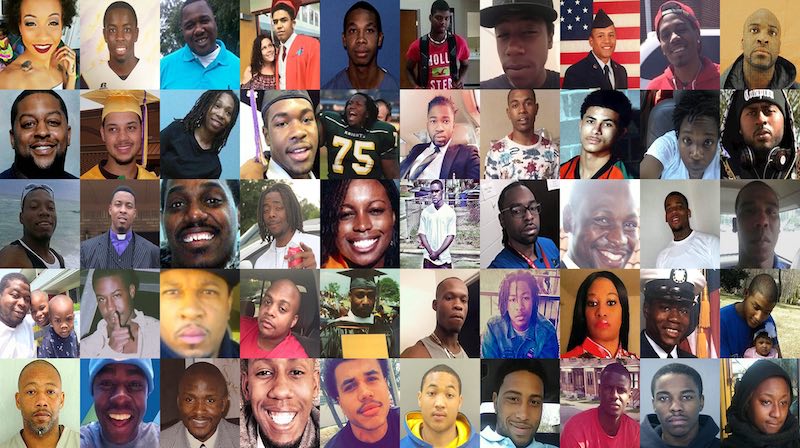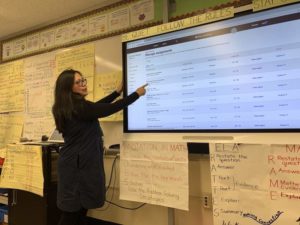
Addressing The Problem with Homework
Many educators are starting to recognize the problem with homework. And while homework is almost universal, there is little evidence that it actually works.

Is it possible to separate education from politics? Perhaps. But it is impossible to separate education from morality.
From the time I taught my first class, I believed in keeping my own political beliefs hidden from my students.
And as a writer and speaker on education issues, I’ve maintained that same discretion. Why would I talk about politics? It’s outside my area of expertise. And it would only alienate those with different views.
But after watching a video showing one human being restrain another to death for nine minutes, I can no longer pretend. I can’t pretend that police violence against black Americans is a political issue. It’s a moral issue.
This isn’t the first time I’ve seen video evidence of police violence against black Americans. I cry every time I watch a calm and compliant Philando Castile shot seven times. Just for reaching for his license and registration.
And I cry every time I see Sandra Bland violently arrested over a failure to signal. Knowing she will be soon be found hung in her jail cell, under suspicious circumstances.
I cry when I see Walter Scott being shot in the back while running from an officer. And I burn with anger when I hear the recording of that officer falsely claiming that it was during a struggle.
But the death of George Floyd was different. There was no plausible deniability. No pursuit. No heat of the moment. There was no hidden camera. I watched Derek Chauvin calmly stare down bystanders, knowing that he was being filmed. I saw his fellow officers standing idly by. And I heard George Floyd begging for his life.
The look on officer Chauvin’s face while he murdered George Floyd feels like ice in my veins.
His expression says that he knew he was being watched. He knew his fellow officers wouldn’t intervene. He felt no empathy for the man he was pinning to death. And he was confident he would face no consequences.
Failing to call out injustice, as Elie Wiesel pointed out, means “taking the side of the oppressor.”
I’ve always separated work from politics. I believe that our political views can create unnecessary divisions. Whether we’re Democrats or Republicans, Socialists or Libertarians, we can all work together as kind and reasonable human beings. We can be great teachers, regardless of party affiliations.
But no human can watch Derek Chauvin kill George Floyd and think it’s ok. Or an unfortunate misunderstanding.
No one should be able to watch the officers standing idly by and believe that police brutality is just “a few bad apples.” You can’t watch that video and feel that the real problem is the protestors who are now destroying property.
The issue is systemic. And the property is just property. Humans protect and care for other humans.
Anyone who isn’t heartbroken by seeing George Floyd slowly murdered for nine minutes is missing something that’s essential to being human. And missing something that is essential to being a teacher.
Over the past few days, for the first time, I’ve seen people from across the political spectrum finally acknowledge the severity of the problem. I’ve seen others, like me, decide that being apolitical is not the same as being amoral. That we can’t completely separate education from politics.
Deep down, I can’t allow myself to believe that Americans are split on this issue. I believe that once the fires die down, we can unite in shared condemnation of the killing.
I hope we will come together, recognizing that our shared humanity comes before our religion, our background, or our party affiliations.
 Jeff Lisciandrello is the founder of Room to Discover and an education consultant specializing in student-centered learning. His 3-Bridges Design for Learning helps schools explore innovative practices within traditional settings. He enjoys helping educators embrace inquiry-based and personalized approaches to instruction. You can connect with him via Twitter @EdTechJeff
Jeff Lisciandrello is the founder of Room to Discover and an education consultant specializing in student-centered learning. His 3-Bridges Design for Learning helps schools explore innovative practices within traditional settings. He enjoys helping educators embrace inquiry-based and personalized approaches to instruction. You can connect with him via Twitter @EdTechJeff

Many educators are starting to recognize the problem with homework. And while homework is almost universal, there is little evidence that it actually works.

Staying calm in the classroom is one of the most important skills a teacher can have. How do some teachers always seem to keep their cool?

Do the benefits of recess transfer to the classroom? It appears that increasing recess in school can produce surprising benefits.